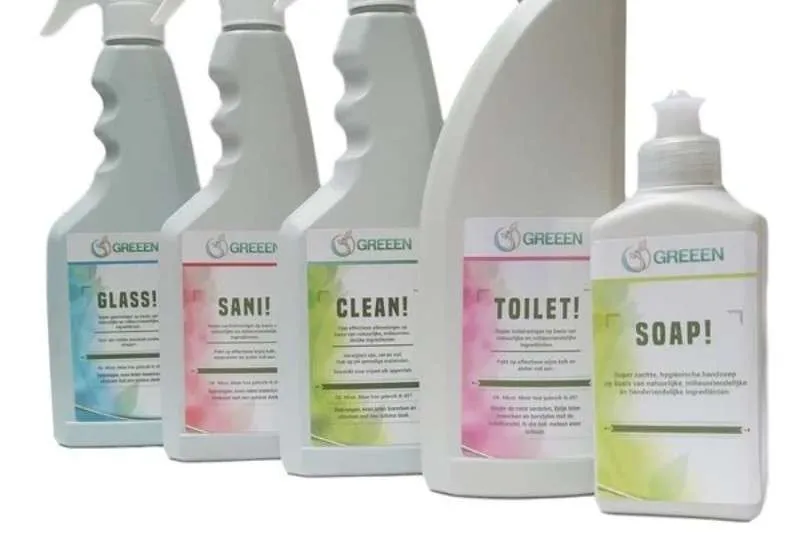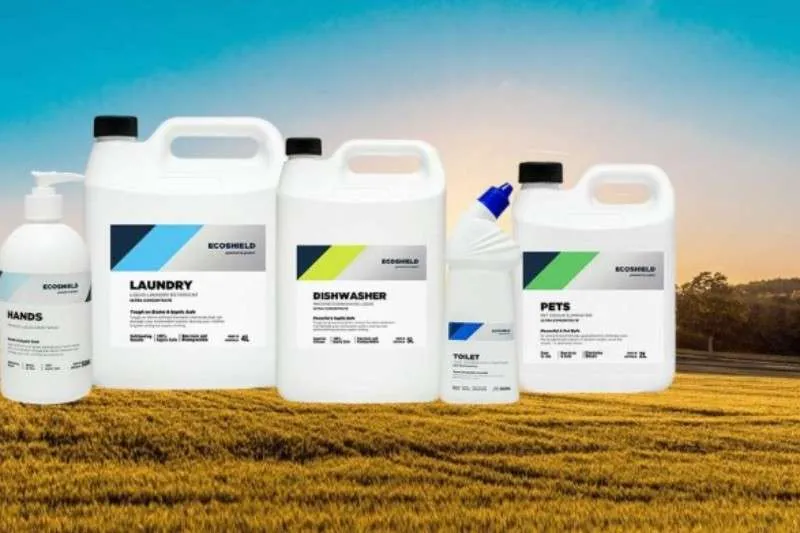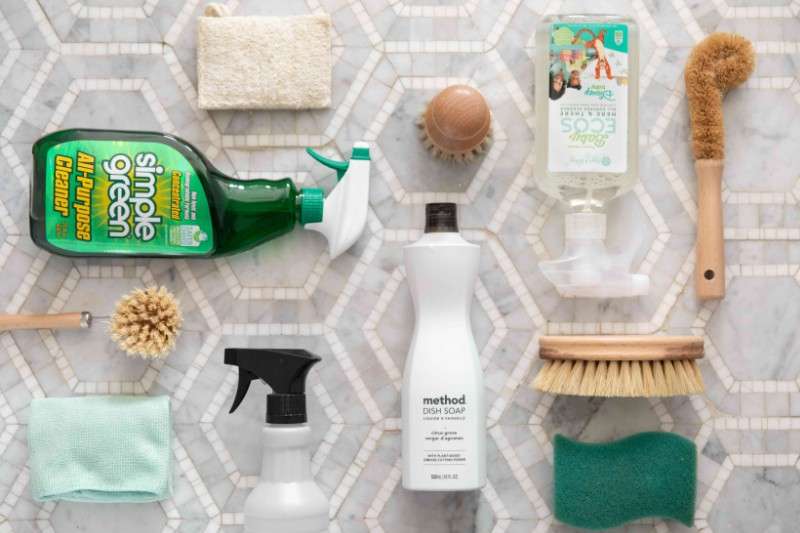Are you looking for a way to keep your home clean without worrying about harming your septic system? If so, then this blog post is perfect for you! In it, we explore the best septic-safe cleaning products on the market and explain why they are such great choices. From laundry detergent to toilet cleaner, we will show you how to select the right items that won’t damage your septic-friendly or plumbing setup.
We also provide information on when and how often these products should be used to maximize their effectiveness while preserving your septic tank’s integrity. So if you want a proactive approach toward safeguarding your home’s cleanliness and healthy drainage system, read on.
Introduction to septic-safe cleaning products
Septic systems are critical components of any home’s plumbing system. To keep your septic tank and drain field running properly, it is important to use cleaning products that won’t interfere with the bacteria and organisms that live in the tank or clog up piping. Septic-safe cleaning products are those designed specifically for use in a septic system.
The impact of cleaning products on septic system health is significant. Regular household cleaners and commercial-grade products can contain harsh chemicals that kill beneficial bacteria in your septic tank, interfere with the enzymes used to break down waste in the tank or clog up pipes leading from the tank to the drain field. This can lead to a costly repair or even replacement of your septic system.
Septic-safe cleaning products are the best way to maintain and keep your septic system operating properly for years. Septic-safe cleaners are formulated from natural ingredients that break down easily in the tank, so they won’t clog up pipes or introduce toxic chemicals into the environment. In addition, cleaners are safe and gentle on surfaces, so you don’t have to worry about damaging your fixtures or appliances.
Using septic-safe cleaning products allows you to keep your septic system running efficiently and effectively for years. It is an important part of maintaining a healthy home and environment. Always read the labels of cleaning products before using them to ensure they are septic-safe. Doing so lets you rest easy, knowing your septic system is in good hands.
Biodegradable and eco-friendly cleaners
The use of biodegradable and eco-friendly cleaning products is becoming increasingly popular due to their environmental benefits. These cleaners are better for the environment and can also be used in septic systems without causing any damage. Septic tanks require special care for cleaning products that protect local bacteria and their delicate ecosystem.
The main benefit of using biodegradable cleaning products is that they are completely safe for the environment and won’t cause any harm to wildlife or aquatic life. They also don’t contain any toxic chemicals, which can damage humans, pets, and the environment. Furthermore, these cleaning products are typically made from natural, renewable sources, such as plant-based oils and minerals.
When using biodegradable cleaners for septic tanks, it’s important to follow the directions carefully and use only those designed for this purpose. Examples of eco-friendly cleaners suitable for septic systems include BioKleen, Eco-me, Nature’s Miracle, and Seventh Generation. These products are designed to be environmentally friendly and safe for septic systems while providing excellent cleaning power.
Avoiding harsh chemicals and antibacterial agents

Septic-safe cleaning products are necessary to protect human health and maintain the health of your septic system. Many conventional household cleaners contain chemicals that can damage you and your septic tank, so it is important to ensure that only septic-safe cleaning products are used in or around your system.
Harsh chemicals and antibacterial agents can damage the delicate bacterial balance in your septic tank. This bacteria is essential to break down solid waste, so when harsh chemicals disrupt it, it can lead to a buildup of solids, resulting in a clog or backup in your system. These chemicals can also leach into the soil around your tank, causing water contamination and other environmental issues.
Common household cleaners to avoid include bleach, ammonia, toilet bowl cleaners, oven cleaners, and drain cleaners. These products can hurt your septic system’s health, so opting for septic-safe cleaning products instead is best. Look for septic-safe alternatives that are specially formulated for septic systems. These products typically contain natural ingredients that are safe to use in and around your system, such as baking soda, vinegar, and lemon juice.
Using the right cleaning products can help protect your septic system from damage. Septic-safe cleaning products will preserve the healthy balance of bacteria in your system and keep it working properly for years.
DIY natural cleaning solutions
If you are looking for a natural, septic-safe cleaning solution for household and other surfaces, DIY natural cleaning solutions are the way to go. Natural cleaning products are often better for your home’s environment and easier on your wallet. Homemade recipes using septic-safe ingredients can be as effective as store-bought products without the harsh chemicals and potential damage to your household plumbing waste and system.
When making natural cleaning solutions, it is important to use septic-safe ingredients. Baking soda, vinegar, and essential oils are all safe choices that can be combined to create an effective solution. You could also mix a few drops of liquid dishwashing soap with water for tougher jobs to create a more powerful cleanser.
For DIY natural cleaning recipes, start by combining baking soda and vinegar in an appropriate container for the job. Add essential oils such as lavender or tea tree oil for disinfecting power and a pleasant scent. Add a tablespoon of borax or washing soda to the recipe for surfaces that need extra scrubbing. Mix well and use a non-abrasive cloth to clean surfaces.
Homemade cleaning products should not be stored for extended periods because they can lose effectiveness over time. However, you can store any unused ingredients to make more in the future as needed.
Reading labels and making informed choices
Knowing what to look for on the labels of cleaning products can help you make informed decisions that protect your health and the environment. Septic-safe cleaning products are necessary for any home or business with a septic system, as they won’t cause damage or blockages in the tank.
A product label is required to have several important pieces of information. For example, it must include the product name, manufacturer and contact details, ingredients list, and warnings for use. It should also state whether the product is safe for septic systems.
When choosing cleaning products for your home or business, you should always look for labels that clearly state they are septic-safe. These products contain ingredients, such as enzymes and bacteria, that will not harm your septic system, instead of harsh chemicals. Some labels may also have an expiration date, which is important to pay attention to get the most out of your product.
Moderation and proper usage of cleaning products
When cleaning your home, moderation and proper usage are key. Septic-safe products are designed to be used sparingly; they should not replace the importance of scrubbing, wiping, and general upkeep of a clean home environment. Too many chemical-based products can lead to an overload of bacteria in your septic tank, leading to system failure.
Tips for reducing the overall use of cleaning products in your home

Tips for reducing the overall use of cleaning products in your home:
- Use green cleaning solutions, such as baking soda and vinegar, whenever possible. Natural ingredients can clean just as effectively but won’t pose the same risk to your septic system.
- Regularly vacuum carpets and furniture to keep dirt and dust from accumulating.
- Use a microfiber cloth for windows and mirrors; no additional cleaning product is required.
- Clean surfaces with a damp cloth instead of using chemical-based products.
- Opt for non-toxic laundry detergents and fabric softeners.
- Invest in a good septic system maintenance program to help keep your tank clean and healthy.
FAQs
Why is it important to use septic-safe cleaning products?
It’s important to use septic-safe cleaning products because they contain ingredients designed not to harm your septic system, unlike harsh chemical-based products. Septic-safe cleaning products won’t cause blockages or other damage in the tank, helping you keep your system running smoothly.
What examples of septic-safe cleaning products are available on the market?
Many products on the market are considered septic-safe. Common options include liquid dishwashing soap, natural cleaning solutions like baking soda and vinegar, non-toxic laundry detergents, fabric softeners, enzyme cleaners, and biodegradable soaps.
Can using harsh cleaning products damage my septic system?
Yes, they can. Harsh cleaning products contain chemicals that are not designed to be used in septic systems. These chemicals can cause blockages and other damage, leading to system failure. It’s best to use septic-safe cleaning products specifically designed for this environment.
How can I make my septic-safe cleaning products at home?
Making your septic-safe cleaning products at home is easy. Mix one part white vinegar with four parts water to create an effective all-purpose cleaner. Combine baking soda and water for a stronger solution, or mix liquid soap and borax in equal parts.
What ingredients should I avoid in cleaning products for my septic system?
You should avoid cleaning products containing corrosive chemicals, chlorine bleach, and hydrogen peroxide. These ingredients can damage the bacteria in your septic tank and cause blockages or other problems.
How can I tell if a cleaning product is septic-safe?
You can determine if a cleaning product is septic-safe by looking for labels stating the product is specifically designed for use in septic systems. Look for ingredients such as enzymes, bacteria, and biodegradable soaps. Avoid using the product for septic use if a label does not indicate that it is septic-safe.
Are septic-safe cleaning products more expensive than regular products?
In most cases, septic-safe cleaning products cost more than regular cleaning products. This is because septic-safe products are chemical cleaners specially formulated to be safe for use in septic systems and often contain additional ingredients that regular cleaning products do not have.
Can I use bleach in moderation with a septic system?
Coarsely speaking, you should avoid using bleach in your septic system. Although it can be used in moderation, bleach can kill beneficial bacteria in the tank and lead to an overload of solids that can cause a blockage or other damage.
Conclusion
Choosing the right septic-safe cleaning products will reduce your dependency on hazardous chemicals and regular maintenance. Our guide offers reliable suggestions to maximize your septic-safe products and eliminate germs while safeguarding your long-term cleanliness. Don’t forget to replace your septic-safe cleaning solutions regularly, and follow our advice when looking for an air freshener that won’t harm your system. By selecting formulas created with a septic tank in mind, you’ll remove dirt and all types of bacteria without putting too much pressure on your drainage system.


